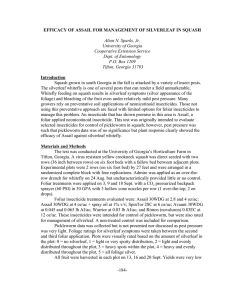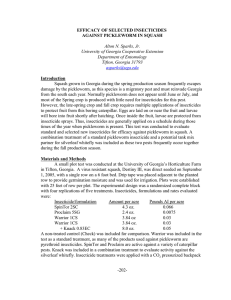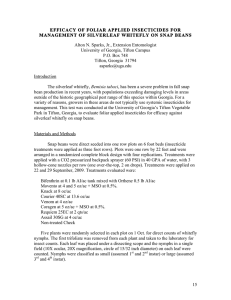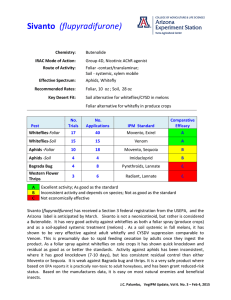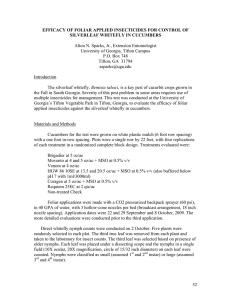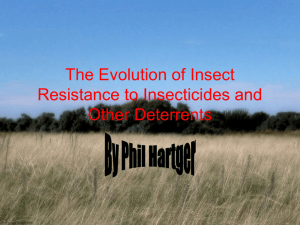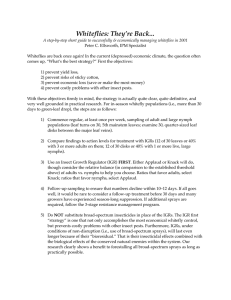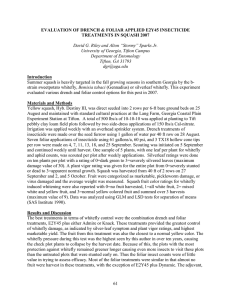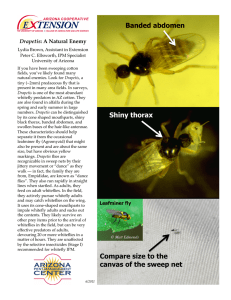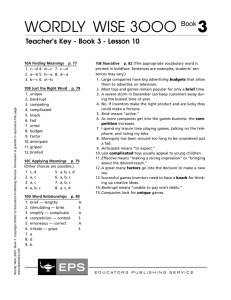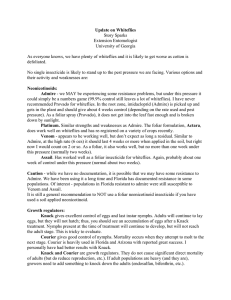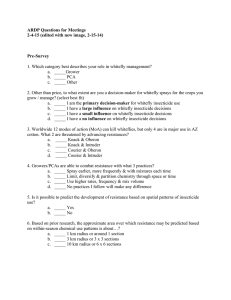EFFICACY OF SELECTED FOLIAR INSECTICIDES AGAINST Alton N. Sparks, Jr.
advertisement
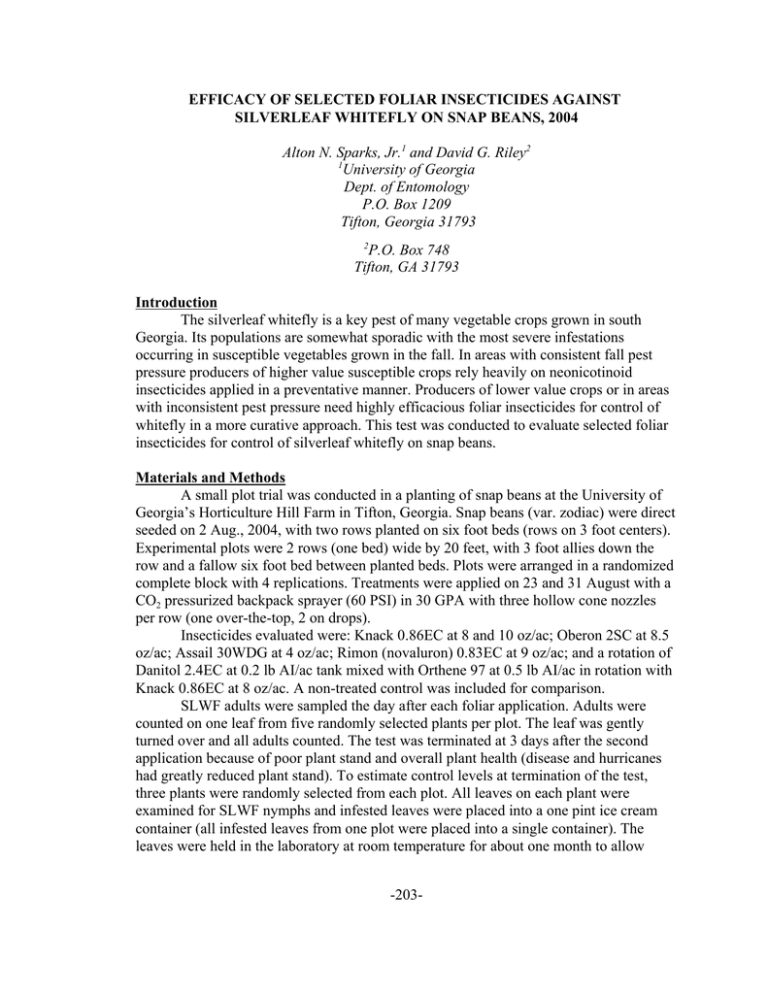
EFFICACY OF SELECTED FOLIAR INSECTICIDES AGAINST SILVERLEAF WHITEFLY ON SNAP BEANS, 2004 Alton N. Sparks, Jr.1 and David G. Riley2 1 University of Georgia Dept. of Entomology P.O. Box 1209 Tifton, Georgia 31793 2 P.O. Box 748 Tifton, GA 31793 Introduction The silverleaf whitefly is a key pest of many vegetable crops grown in south Georgia. Its populations are somewhat sporadic with the most severe infestations occurring in susceptible vegetables grown in the fall. In areas with consistent fall pest pressure producers of higher value susceptible crops rely heavily on neonicotinoid insecticides applied in a preventative manner. Producers of lower value crops or in areas with inconsistent pest pressure need highly efficacious foliar insecticides for control of whitefly in a more curative approach. This test was conducted to evaluate selected foliar insecticides for control of silverleaf whitefly on snap beans. Materials and Methods A small plot trial was conducted in a planting of snap beans at the University of Georgia’s Horticulture Hill Farm in Tifton, Georgia. Snap beans (var. zodiac) were direct seeded on 2 Aug., 2004, with two rows planted on six foot beds (rows on 3 foot centers). Experimental plots were 2 rows (one bed) wide by 20 feet, with 3 foot allies down the row and a fallow six foot bed between planted beds. Plots were arranged in a randomized complete block with 4 replications. Treatments were applied on 23 and 31 August with a CO2 pressurized backpack sprayer (60 PSI) in 30 GPA with three hollow cone nozzles per row (one over-the-top, 2 on drops). Insecticides evaluated were: Knack 0.86EC at 8 and 10 oz/ac; Oberon 2SC at 8.5 oz/ac; Assail 30WDG at 4 oz/ac; Rimon (novaluron) 0.83EC at 9 oz/ac; and a rotation of Danitol 2.4EC at 0.2 lb AI/ac tank mixed with Orthene 97 at 0.5 lb AI/ac in rotation with Knack 0.86EC at 8 oz/ac. A non-treated control was included for comparison. SLWF adults were sampled the day after each foliar application. Adults were counted on one leaf from five randomly selected plants per plot. The leaf was gently turned over and all adults counted. The test was terminated at 3 days after the second application because of poor plant stand and overall plant health (disease and hurricanes had greatly reduced plant stand). To estimate control levels at termination of the test, three plants were randomly selected from each plot. All leaves on each plant were examined for SLWF nymphs and infested leaves were placed into a one pint ice cream container (all infested leaves from one plot were placed into a single container). The leaves were held in the laboratory at room temperature for about one month to allow -203- older nymphs to complete development, adult emergence and mortality. All adults which emerged from the leaves were counted. Data were analyzed with the PROC ANOVA procedure of PS-SAS. Where significant differences were detected (P<0.05), means were separated with LSD (P=0.05). Results and Discussion The only treatment that showed significant reductions in whitefly adults in the field counts was the Danitol+Orthene treatment (reduction on 24 Aug. following the Danitol+Orthene application; no reduction on 1 Sept. following the Knack application). Given the mode of action of most of the other insecticides tested, the lack of activity on adults (or lack of detection in a small plot situation) was expected. Adult emergence from nymph infested leaves was lowest in all three treatments containing Knack. Rimon also showed good to excellent reductions in adult emergence. The lack of performance with Oberon and Assail are difficult to explain at this time. Assail has provided excellent control of whiteflies in fall squash tests, included a test adjacent to this bean trial. Table 1. Silverleaf whitefly densities and adult emergence, snap bean efficacy study, Tifton, Georgia, 2004. Treatment Number of SLWF adults per leaf Number of adults emerged per three plants 24 Aug. 1 Sept. Check 25.1 a 45.0 a 268.8 a Assail 22.8 a 47.2 a 292.0 a Oberon 22.4 a 50.1 a 188.0 ab Rimon 28.8 a 56.9 a 46.0 bc 8.3 b 58.9 a 6.8 c 26.6 a 51.4 a 0.0 c Danitol+Orthene/Knack Knack 8 oz Knack 10 oz 32.7 a 56.9 a 0.3 c Numbers within columns followed by the same letter are not significantly different (LSD; P=0.05). -204-
